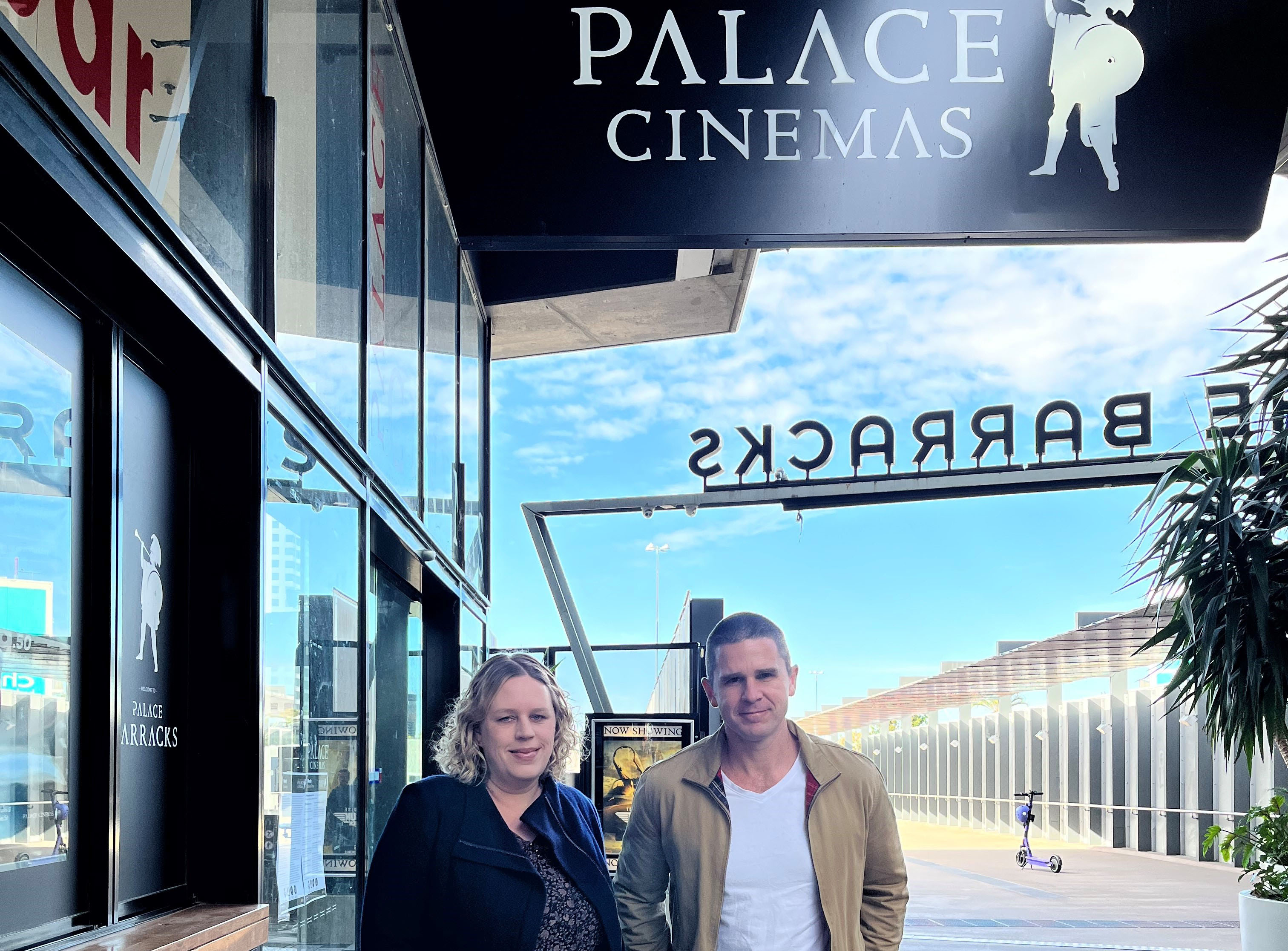
While Top Gun: Maverick has roared into Australian cinemas and grossed more than $13M AUD in its opening weekend, the recovery of cinemas from the COVID pandemic won’t be solved by Hollywood blockbusters alone say researchers from QUT’s Digital Media Research Centre (DMRC).
It’s the third highest grossing opening film since the pandemic (After Spiderman: No Way Home and Dr Strange in the Multiverse of Madness) but DMRC Chief Investigators Dr Ruari Elkington and Dr Tess Van Hemert suggest a return to pre-pandemic levels of cinema attendance will hinge on a wide range of content.
“Top Gun Maverick is a perfect blockbuster in many ways and has helped draw out some of the 35+ cinemagoers who may have gone to the movies less frequently since the pandemic began,” said Dr Elkington who, with Dr Van Hemert, is about to embark on a national project to understand the mindset and desires of audiences.
“Yet we know that Australian cinemas, especially independent cinemas, want the flexibility to program a diversity of content to appeal to a range of audiences and we know audiences crave that diversity also, especially once they’ve already seen the tentpole title.”
In August, Dr Van Hemert from QUT’s School of Communication and Dr Elkington from the School of Creative Practice will partner with Palace Cinemas to conduct the first comprehensive national survey of the independent chain’s moviegoers.

The survey will help build upon their DMRC ‘Resilient Screens’ research project which investigates how Australian independent cinemas have responded to COVID impacts and continue to maintain engagement with their audiences.
Alex Moir, National Marketing Manager for Palace Cinemas, which has 180 screens Australia-wide, welcomed the collaboration.
“While we’ve seen a change in tactics from major studios distancing themselves from day-and-date releasing, and proof that the economic viability for many films remains in the theatrical release model, we still need a greater understanding of what drives audiences to the cinema vs. staying home,” said Mr Moir.
“Knowing the core appeals of cinema in a post-pandemic world, when audiences are inundated with choice, is paramount to our continued success.”
Australian Feature Film Summit organiser and producer of The Dressmaker Sue Maslin said the national survey would provide vital information for the industry.
“This is precisely the kind of research our industry needs and will make an important contribution to growing our understanding of audiences in a vastly changed theatrical landscape,” Ms Maslin said.
“Independent cinemas are where most audiences get to see a variety of Australian films each year. We hope that creatives will benefit more from this type of research in the future so we can deliver more commercially and culturally successful films going forward.”
Dr Van Hemert said a trip to the movies was Australia’s most popular cultural activity, with independent cinemas hosting more than 27 million visitors and contributing more than $250 million into the nation’s economy prior to COVID-19.
“Cinemas are mostly a commercial enterprise, but they are also a public good, especially outside of metro areas where a cinema is a community hub and a driver of social cohesion,” she said.
“If the frequency of going to the cinema in Australia starts to resemble the frequency of going to the theatre or a musical, our communities and our culture will suffer.
“Our research has already found that Australian cinemas have been quite remarkable in how they have adapted to COVID and have been able to keep audiences engaged and win them back as lockdowns and other restrictions have eased.”
Dr Elkington added that while the past two years had been extremely tough for operators, the opening of new cinemas in Brisbane and elsewhere held the promise of green shoots of economic recovery for the industry.
“No matter how many streaming services and other in-home entertainment platforms there are, Australians will always have a special place in their heart for cinemas,” he said.
“Most of us have such strong, sentimental memories associated with going to the movies, whether as young children, teenagers, or adults. I remember the first movie I saw and who could even begin to speculate how many first dates have involved seeing a film together.
“If anything, cinemas are more inviting than ever with their extra comfortable seats, movie clubs, festivals, special events and other attractions.”
Media contact:
Amanda Weaver, QUT Media, 07 3138 3151, amanda.weaver@qut.edu.au
After hours: 0407 585 901, media@qut.edu.au


